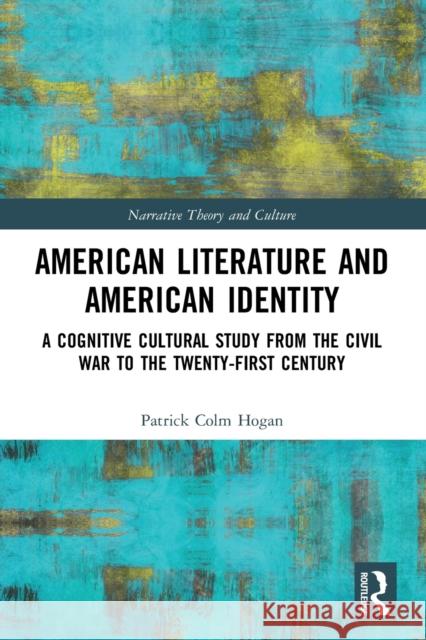American Literature and American Identity: A Cognitive Cultural Study from the Civil War to the Twenty-First Century » książka
American Literature and American Identity: A Cognitive Cultural Study from the Civil War to the Twenty-First Century
ISBN-13: 9781032125688 / Angielski
American Literature and American Identity: A Cognitive Cultural Study from the Civil War to the Twenty-First Century
ISBN-13: 9781032125688 / Angielski
(netto: 195,06 VAT: 5%)
Najniższa cena z 30 dni: 201,44
ok. 22 dni roboczych.
Darmowa dostawa!
Hogan examines how important, post-Civil War authors imagined American identity—understood as universal, democratic egalitarianism—when faced with the nation’s often brutal inequalities of race, sex, and sexuality. In Hogan’s analysis, this imagination is inseparable from the narrative structures favored by the human mind.
In recent years, cognitive and affective science have become increasingly important for interpretation and explanation in the social sciences and humanities. However, little of this work has addressed American literature, and virtually none has treated national identity formation in influential works since the Civil War. In this book, Hogan develops his earlier cognitive and affective analyses of national identity, further exploring the ways in which such identity is integrated with cross-culturally recurring patterns in story structure. Hogan examines how authors imagined American identity—understood as universal, democratic egalitarianism—in the face of the nation’s clear and often brutal inequalities of race, sex, and sexuality, exploring the complex and often ambivalent treatment of American identity in works by Charlotte Perkins Gilman, Eugene O’Neill, Lillian Hellman, Djuna Barnes, Amiri Baraka, Margaret Atwood, N. Scott Momaday, Spike Lee, Leslie Marmon Silko, Tony Kushner, and Heidi Schreck.











